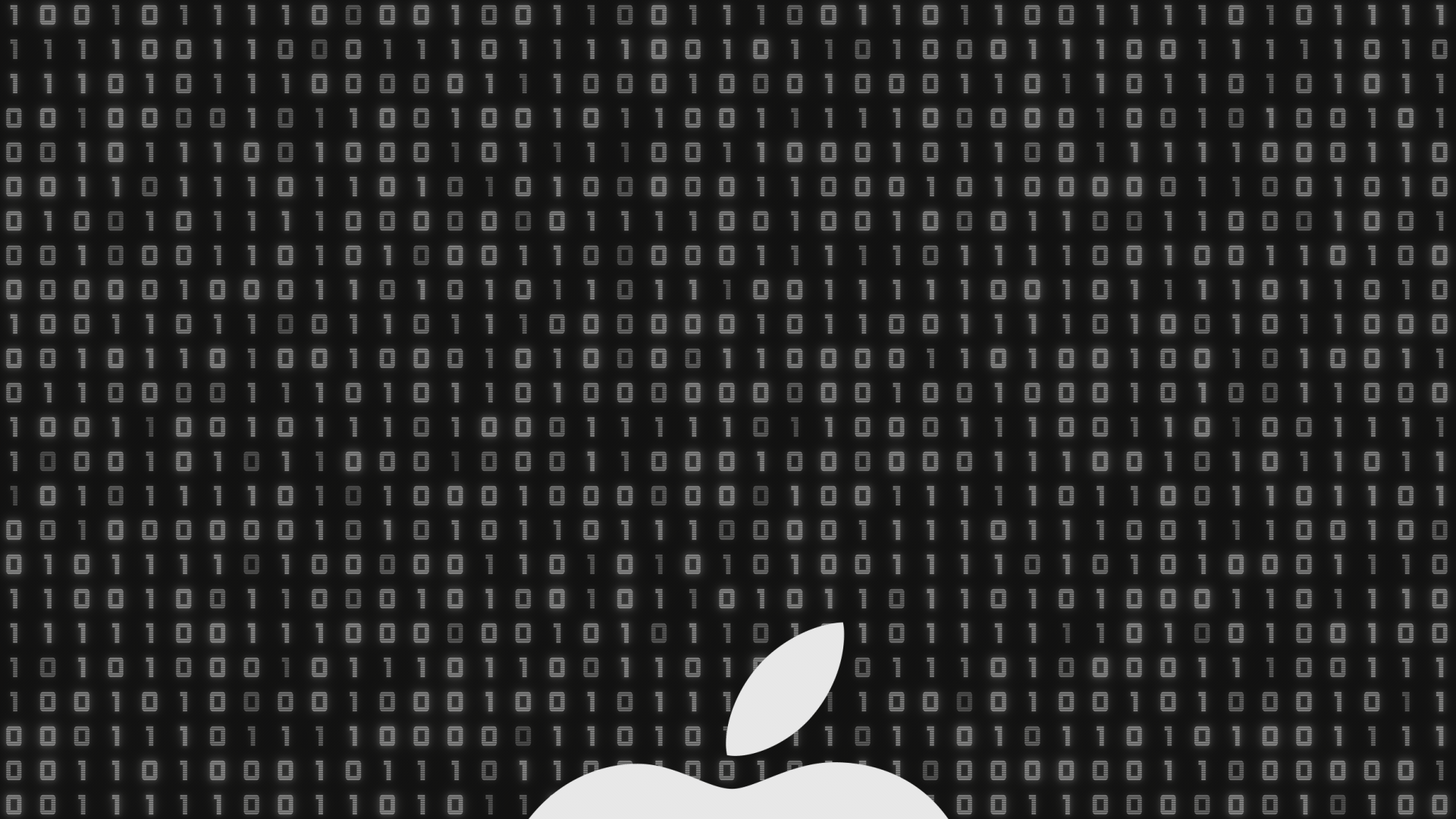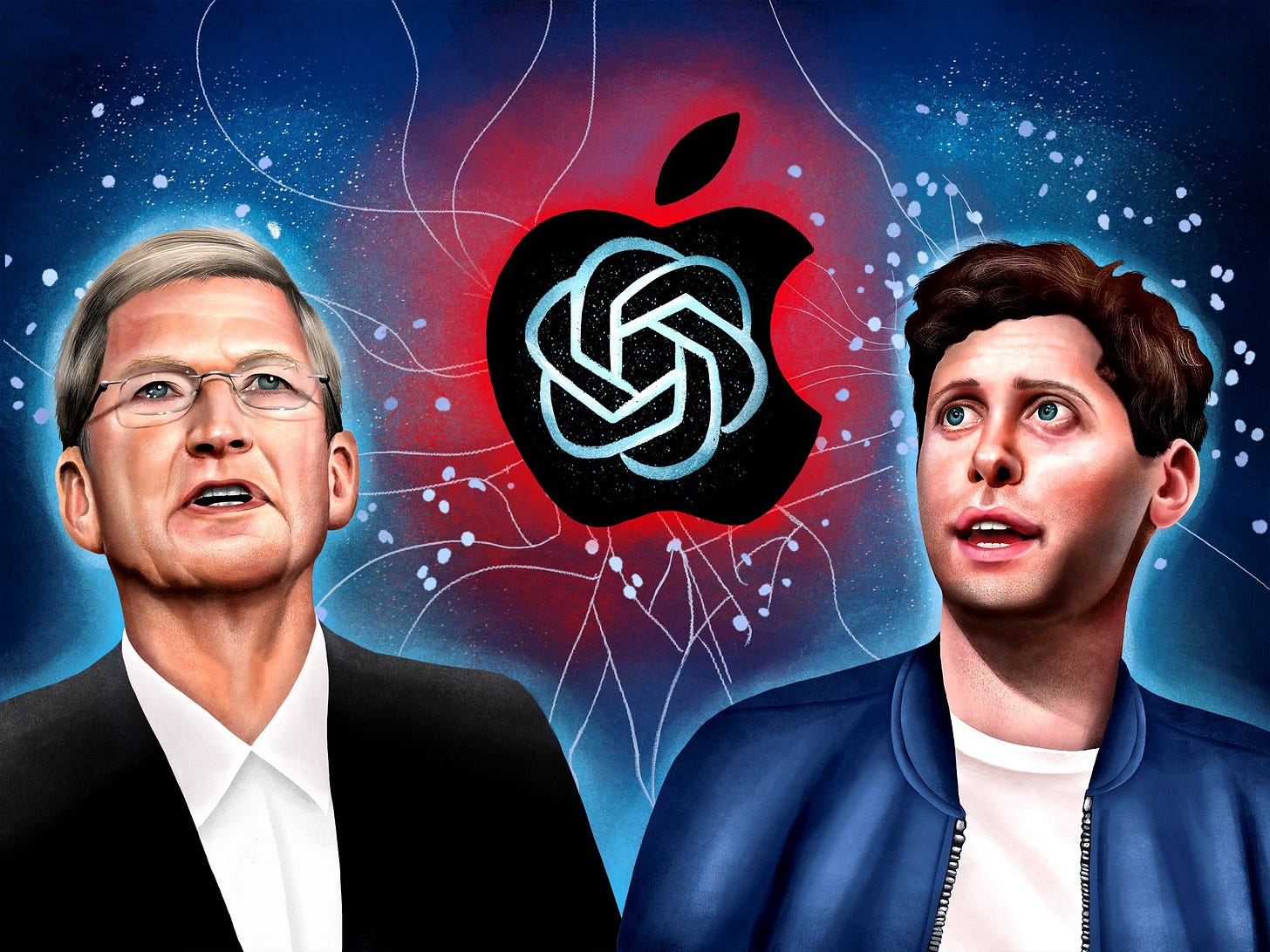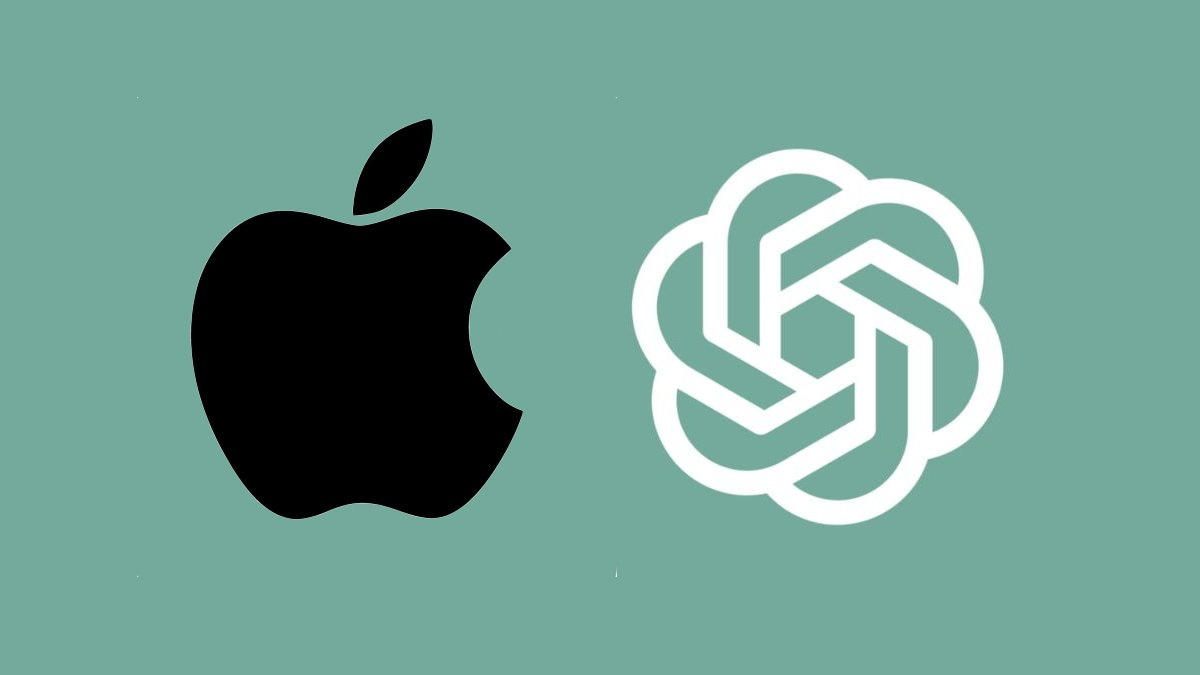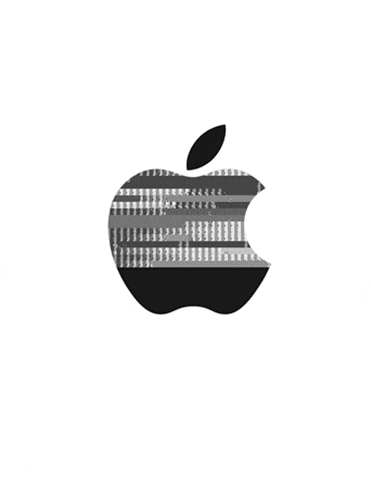AI: Examining potential Apple/OpenAI Siri deal. RTZ #379
...win-wins emerging for both, along with future flexibility
With days to go before Apple’s iconic WWDC Developer conference on June 10, the expectations ramp up every day on Apple’s AI moves to come. A topic I’ve been also ruminating around for days now. Apple’s emerging, and upcoming AI strategy is top of mind for the world, especially as one of the top AI pace makers Nvidia today nudged Apple at the $3 trillion market cap level in the public markets.
The top takeaway for now seems to be a deal between OpenAI and Apple to power the next incarnation of Apple Siri. Bloomberg provides additional details on how “Apple made once unlikely deal with Sam Altman to catch up in AI”:
“Apple, racing to catch up in that area, has forged a partnership to integrate OpenAI’s ChatGPT into the iPhone’s operating system. Though the controversial Altman is unlikely to take the stage at the event, the agreement will be a key focus of Apple’s Worldwide Developers Conference next week — and it shows just how much the power in Silicon Valley has shifted over the past few years.”
It’s likely a deal of convenience for both parties, as pointed out in the piece:
“Apple has been developing a host of AI features, including ones that run on its devices and others that require cloud computing. It’s also infusing its Siri digital assistant with AI. But the company’s own chatbot isn’t yet up to snuff.”
“The OpenAI partnership is likely a “short- to medium-term relationship” for Apple, said Dag Kittlaus, a tech veteran who co-founded and ran the Siri business before it was acquired by Apple. “But you can bet that they will be working hard building out their own competencies here.”
“The deal gives OpenAI access to hundreds of millions of Apple users, including ones that might have been hesitant to try ChatGPT otherwise. For Apple, the arrangement brings the company the hottest technology of the AI era — a chatbot with eerily powerful abilities — that it can pair with its own services.”
Lot more will become clearer of course at WWDC next week on Apple’s AI stategies. But the Bloomberg piece also addresses Apple’s need to continue to manage its $20 billion+/year deal with Google, as that company ramps up its AI services with Google AI Gemini in Google Search and other Google products and services:
“Though Apple remains in talks with Google about using Gemini in its devices, the iPhone maker reached an agreement with OpenAI first. In the end, Apple may offer a number of third-party chatbots, but it’s negotiating the deals on a case-by-case basis, according to the people with knowledge of the situation.”
There’s a lot more detail around the short-term win/win opportunities for both parties in such a deal:
“Apple picked OpenAI as its inaugural AI partner for a few reasons, one of the people said. It got better business terms than Google was offering, and Apple believes that OpenAI’s technology is the best available on the market. Integrating Google AI into the iPhone also might have given the impression that Apple’s biggest technology rival had beat it in a vital new area.”
“OpenAI, meanwhile, will get the gigantic exposure that comes with being deeply integrated into some of the world’s best-selling smartphones and tablets. Still, Apple’s involvement may bring new scrutiny to the safety and privacy concerns swirling around ChatGPT. Depending on how deeply Apple plans to integrate the chatbot with its software, it also could mean that OpenAI has access to personal information, which could unnerve some users.”
A key item to note here is that the OpenAI features are likely to require for users to turn them on, an ‘opt-in’ service. This means a relative minority of Siri’s hundreds of millions of daily users will actually turn it on. It’s not on by default, as it appears now:
“But Apple is expected to offer its new AI features as an opt-in service, according to the people familiar with the matter. So wary customers could easily steer clear of them if they’d prefer.”
“Regardless, the OpenAI agreement is likely a stopgap measure. Apple has a long history of eventually bringing outside technology in-house, such as when it replaced Intel Corp. chips with its own silicon.”
As the WSJ points out separately in “How Apple Fell Behind in the AI Arms Race”, Siri was the service that promised many of the current AI features we’re currently seeing from OpenAI’s multimodal, voice-optimized GPT-4 Omni and others:
“For those who saw them, the demonstrations inside Apple earlier this decade of a revamped Siri offered a showcase of the amazing capabilities a powerful AI voice assistant could have.”
“The famed assistant, one of the last projects Apple co-founder Steve Jobs worked on before his death, had been given a total overhaul. Capable of running on an iPhone and without an internet connection, the new Siri impressed people with its improved speed, conversational capabilities and the accuracy with which it understood user commands. Code-named Project Blackbird, the effort also imagined a Siri with capabilities built by third-party app developers, according to people familiar with the work.”
As we’ve seen through many Tech waves before this this AI Tech Wave, technology generally takes a long time to catch up to our aspirations. Especially since mainstream adoption to billions, with AI technologies barely built, typically takes time and money at Scale. And when it does, it happens faster than expected.
These potential moves by Apple and OpenAI around Siri with AI voice and AI Agentic capabilities, are likely an interim step on this AI expectations spectrum. And we’ll know a lot more about it all next week. Stay tuned.
(NOTE: The discussions here are for information purposes only, and not meant as investment advice at any time. Thanks for joining us here)







